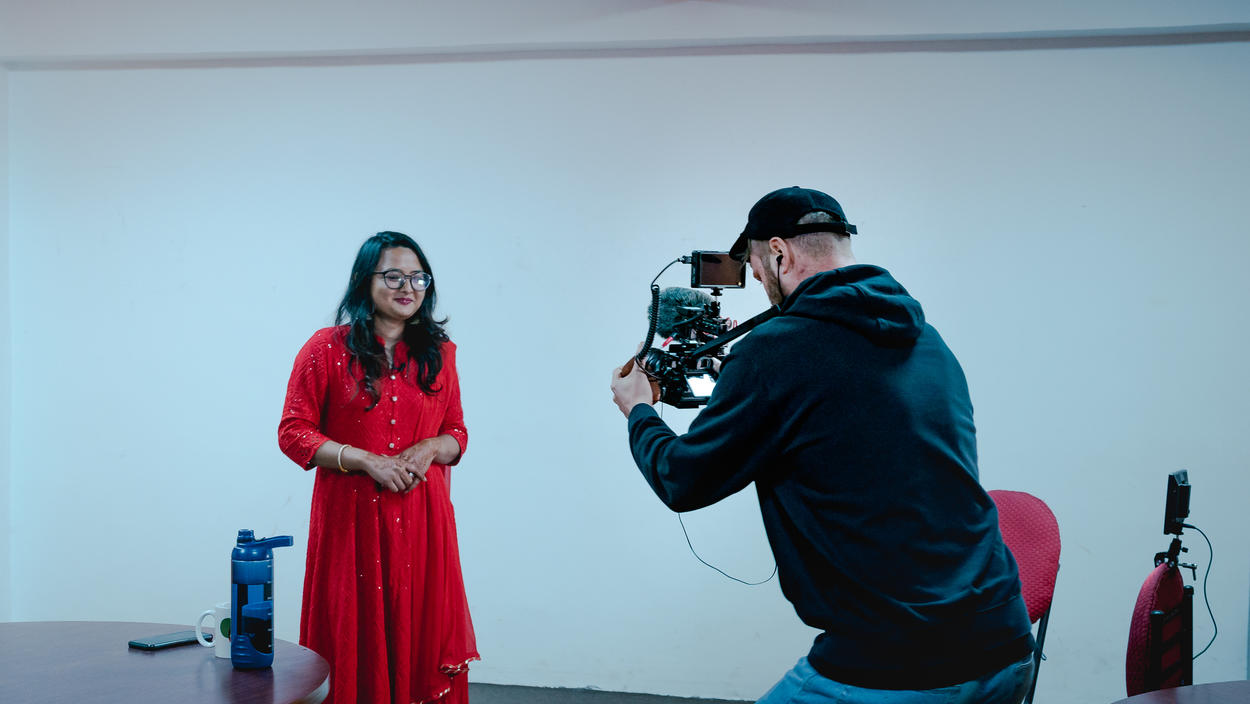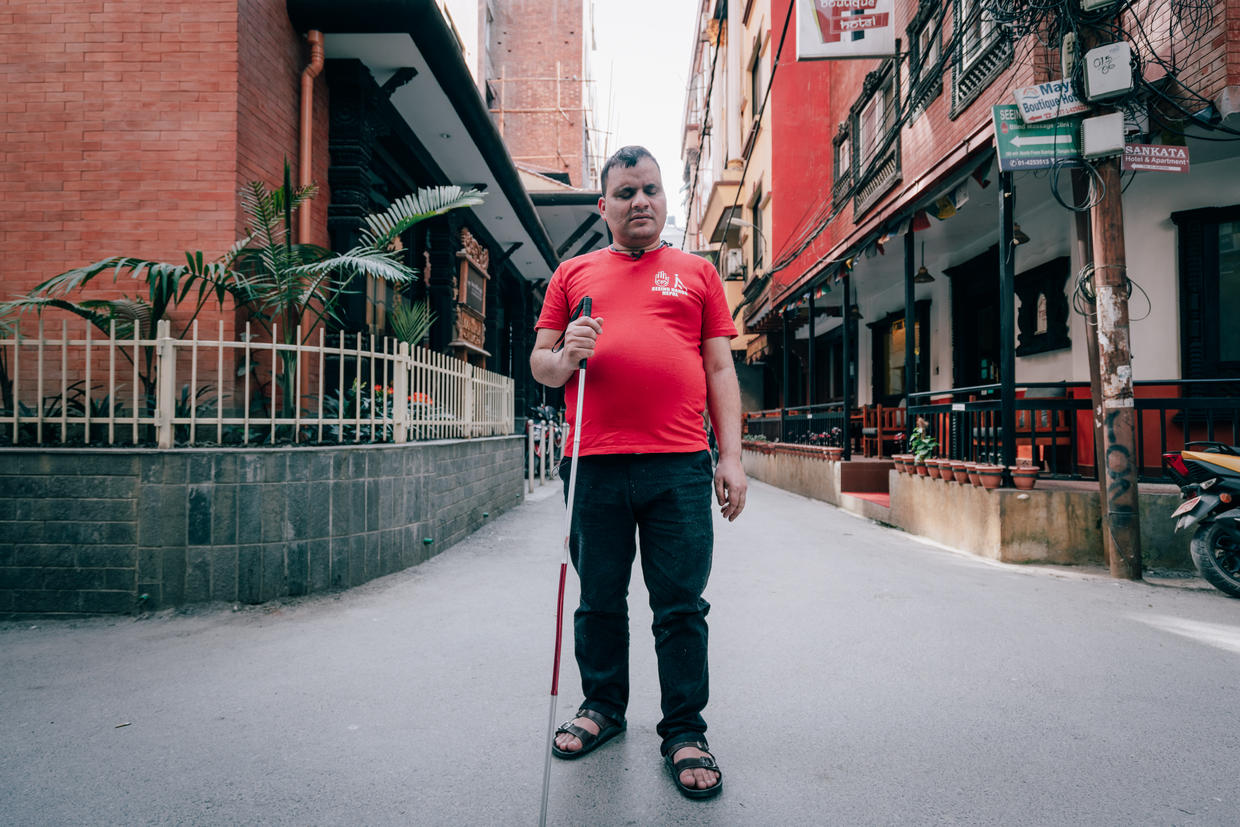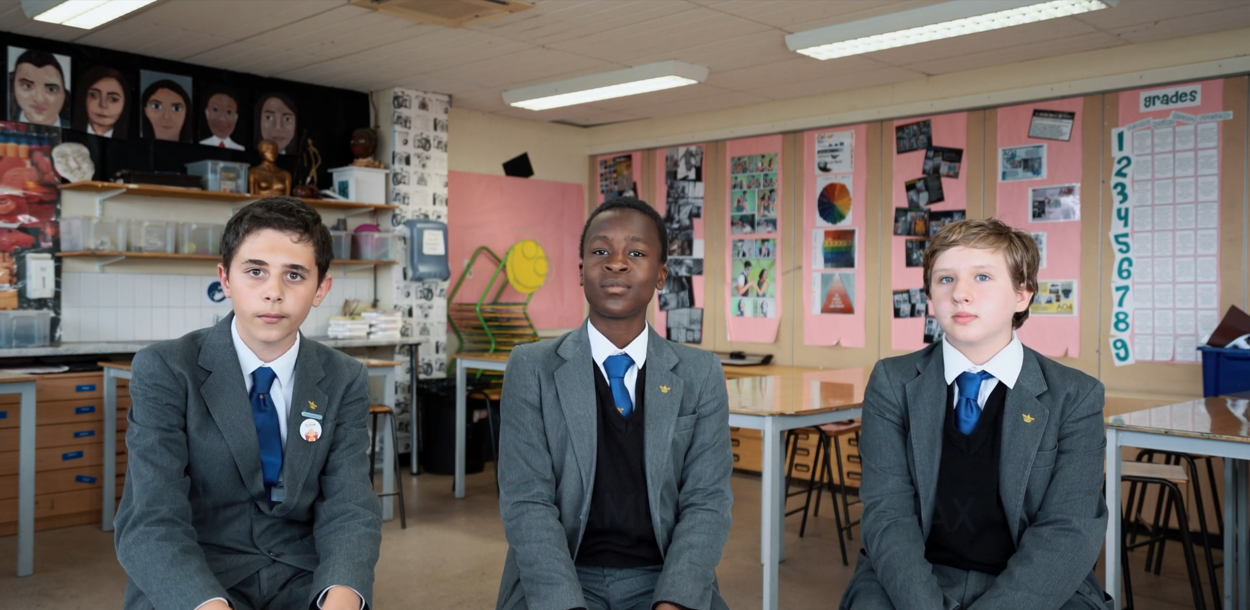How we taught empathy to 140,000 students worldwide
How do we learn empathy? Ed Kirwan, CEO and Founder of Empathy Week, explains how a group of Year 11 students he taught, combined with his new-founded passion for filmmaking, inspired a programme for teaching empathy.
Plus, we hear from a Teach First ambassador and students at Kingsmead School in London (where the initial idea of teaching empathy began for Ed), to understand why they feel learning how to be empathetic is important.
As part of the Teach First Training Programme, I taught secondary school pupils science at Kingsmead School in North London for three years. This experience exposed me to my own privilege, and the role of empathy in understanding each other to positively support each other.
I loved teaching and I absolutely loved the kids. I found the transition to working life and the responsibility of hundreds of children’s science education really tough at first. This includes building trust with students and managing behaviour and managing workload. But then you start to see the benefits as you start to build the relationships.
Investing in students as people to build connections
I inherited a group of 24 young men when they were in Year 11, who called themselves the ‘U Gang’ after all getting U grades in their mock GCSE exams.
They were extremely intelligent but lacked aspiration and confidence in themselves – a result of them often feeling misunderstood by those around them. They would often fail tests through their lack of revision, not because they didn’t care, but because they would rather not try and fail than try their best and fail. It was easier to have an excuse than to risk failure, a habit and mindset that I worked hard to get them out of.
I tried not to judge them. Instead, I took an invested interest in their home life and in them as people. I did everything in my power to connect with them on a human level. I experimented with different techniques to engage them in learning.
For example, taking them outside to play basketball during a lesson on homeostasis (teaching them about the body’s ability to regulate its internal conditions). It helped of course that I also played and coached the school team, but it was one clear example of thinking outside the box, engaging them by sparking their enthusiasm while also delivering science knowledge which was examinable. It built trust, the most fundamental component for any classroom learning. I also showed them motivational videos of players in the US National Basketball Association (NBA) to remove a victim mindset and help further connect us as a team rather than a group of individuals.
I didn’t necessarily realise it at the time but it was these experiences that showed me what was missing from the curriculum – being able to showcase other people’s lives and perspectives to influence your understanding of, and behaviour towards, each other. Not everyone can afford to travel to learn about other people and cultures. That’s why film is so powerful (and cost effective), it removes barriers to learn about other people whilst being one of the most engaging and accessible forms of content out there.
None of the ‘U Gang’ ended up with a U grade in their GCSEs, even despite one of my students missing his chemistry exam because he was in a police cell. They all passed. Not because I was the best science teacher, but because I made those students gain greater perspectives whilst allowing them to be seen, heard and understood themselves. I had deployed empathy without necessarily realising it at the time.
Transitioning from teaching to filmmaking
At 25, I decided I’d been in education all my life, had taken on a part-time Master’s degree and wanted a short break to explore something else, knowing I could always return to teaching.

I got into filmmaking partly by accident. I secured a small grant of £500, from what was O2 'Go Think Big' at the time, to make a creative campaign about a passion of mine. I decided to explore homelessness in the UK and created a project called Motivation of the Invisible where I filmed and recorded life on the streets. This led to me doing a TEDx talk in 2019. It also led to a trip to Mexico for the football Homeless World Cup, which involved filming and speaking to many of the individuals to learn about their lives and journeys being homeless – an inspiring and unforgettable trip for me. I then made a subsequent trip to India to live, volunteer and film alongside Slum Soccer.
All of this, and the motivational videos I’d shown the U Gang, led me to realise we could create cinematic human-led stories to inspire students before discussing the social, cultural and moral themes in class. This was the start of Empathy Week which is a now an award-winning programme that uses film, lesson resources and empathy action projects to help develop the skill of empathy year-on-year. In its inception in February 2020, we impacted 20,000 students. Since then, we’ve engaged 140,000 students in 40 countries across six continents, including UK schools in disadvantaged communities. Something we call, the ‘Empathy Generation’.
What is in the Empathy Week programme?
For 2023, there are five films of individuals from Nepal all united by the theme of ‘Opportunity and Education’. This includes teachers and young educators advocating for change and gender equality; a sherpa who’s summited Mount Everest 14 times; and a blind massage therapist who runs his own business.

All films explain either the lack of opportunity or the opportunities they’ve had, and how education in their context is important.
To embed the approach, teachers use the films over five weeks through a series of workshops and assemblies in a whole school approach. This is in three stages:
- Discovering empathy: looking at five powerful 10-minute films over five weeks and discussing what the pupils have seen.
- Building empathy: 10 x 20–30-minute lessons to extend the learning per age group, focusing on empathy for myself, and empathy for others.
- Empathy+: workbooks and online sessions to guide teachers and students through individual or team empathy action projects.
Why should schools invest in teaching empathy?
Building the skill of empathy means you can utilise that to talk about any topic or issue. You can listen to another person and, even if at the end you still don’t agree with them, you can see from their perspective. It’s essentially the greatest tool for communication, leadership and even peace.
The Teach First mission is about how we help young people be successful in life and how having a fair chance at education helps to get them there.
The foundation of our empathy programme is about having empathy for yourself and having it for other people. We’re allowing students to think about their own context, their own backgrounds and understand where they come from; perhaps understand their own privilege, as well as their setbacks. By connecting with yourself, you can connect better to someone else.
This has been reinforced by our pilot research with the University of Cambridge. A survey to measure elements of empathy was conducted with two UK primary schools before participating in Empathy Week, as well as 4–8 weeks after and 13–14 weeks after.
The results showed an increase in emotional empathy, self-esteem and perspectives. And there was an increase in the percentage of children wanting to find out about other people’s lives – rising from 51% to 67%.
Personally, I’ve also seen that it doesn’t matter how smart you are, if you can’t work with someone that you may disagree with, or may not wish to spend time with out of work, it could really hinder that working relationship and progression in that job. Empathy is a tool to help navigate conflict – something we’ll all come across at multiple points in our lives.
Schools perspective: why did you choose Empathy Week?
Teach First ambassador Oliver Palmer
Head of Politics and Citizenship at Morpeth School, London. (Previously Learning Director of Year 8 at Kingsmead School, London).
“Empathy Week has been one of the few resources that I know that, if I needed to, I could just send that out to the tutors as it is so well developed. It has clearly been designed and made by a team who have experience in schools and understand how young people work in the classroom.
“While I was at Kingsmead School, we used it every year since 2020. We suspended all other form activities for a week and used it during form times every day. It followed a similar pattern in the sense that students would complete any pre-activities, watch the video, and then complete the activities and discuss what messages they could take from the video.
“There were lots of fantastic successes:
- Form tutors consistently reported that the resources facilitated fascinating discussions within the classroom.
- The nature of the material is relatable to students (such as those with disabilities, those growing up in challenging circumstances, and those who have experienced discrimination).
- Students also repeatedly commented on how varied the stories were. Hearing about the lives of others is a powerful learning opportunity for children.
- We were lucky enough to have Ed come in and speak to students. Listening to them articulate their feelings on the videos - as well as empathy as a whole - was an absolute pleasure.
“It also helped teachers at our school through several means:
- Oracy - oracy can be a really difficult thing to get right in schools. To have such detailed, well-designed resources made it incredibly easy and we saw students building their speaking skills, as well as their confidence.
- Planning – rarely do you find resources that you take literally off-the-shelf and use within the classroom, but the Empathy Week resources absolutely are. The videos are extremely well-filmed, and the learning resources have clearly been designed by a team with experience working in education settings.
- Engaging – the video format is something students can engage with easily. Obviously, we have lots of focus on literacy throughout the day at school, so the variety that the movie-quality videos provide is great for the students.
“I moved to Morpeth School in September 2022, so while we haven’t implemented it yet, I hope to. It’s incredibly purposeful and valuable content for young people to be engaging with. Seeing how other people live can help bring perspective to the students’ lives. But also hearing stories and understanding about people from outside of their community is a massively important skill for life.”
Student perspectives: why is empathy important?
Year 9 students at Kingsmead School

Asharie
“Say for example, somebody’s in a situation and you guys are having an argument or a disagreement, then I think it’s good to have empathy, so you know you can set your differences aside and see where the other person is coming from.”
George
“I think it will solve a lot of the world’s problems if we just understood each other better.”
Max
“It might seem that the world would be revolving around you, but everyone is one piece of the puzzle that is humanity.”
Empathy Week began on Monday 27 February. However, you can join in at any time in the five-week period. State and government schools can access the full programme for free.
